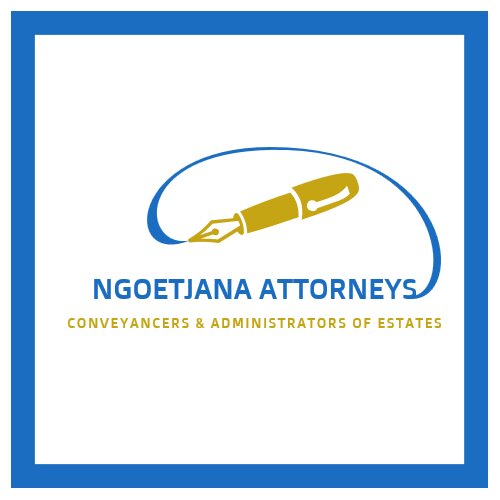Best Commercial Real Estate Lawyers in Centurion
Share your needs with us, get contacted by law firms.
Free. Takes 2 min.
Free Guide to Hiring a Real Estate Lawyer
List of the best lawyers in Centurion, South Africa
About Commercial Real Estate Law in Centurion, South Africa
Centurion, located between Pretoria and Johannesburg, is a thriving commercial hub in South Africa’s Gauteng Province. Commercial real estate in Centurion encompasses properties used for business activities such as retail shops, offices, warehouses, and industrial parks. The commercial property market here is robust, attracting both local and international investors and tenants. Legal processes relating to commercial real estate are governed by national and local laws, with unique considerations due to Centurion’s specific zoning regulations, urban planning, and economic development goals. Whether buying, selling, leasing, or developing commercial property, the relevant law shapes every transaction and relationship.
Why You May Need a Lawyer
Engaging a lawyer in commercial real estate transactions is crucial because these deals are complex and involve significant financial stakes. Common situations where legal assistance is needed include:
- Drafting and reviewing lease agreements for commercial tenants or landlords
- Negotiating the sale or purchase of commercial properties
- Resolving disputes related to property boundaries, development rights, or lease terms
- Dealing with zoning, land use, and planning approvals or objections
- Securing financing and handling registration of bonds or other securities
- Ensuring compliance with health, safety, and building regulations
- Advising on tax implications and municipal rates for commercial property
- Navigating property transfers, registration at the Deeds Office, and associated documentation
A qualified commercial real estate lawyer can protect your interests, ensure compliance with all legal requirements, and help prevent costly mistakes or disputes.
Local Laws Overview
Several laws and regulatory frameworks impact commercial real estate in Centurion. Some of the most important include:
- The Deeds Registries Act and Sectional Titles Act guide property registration and management of sectional title schemes
- The Spatial Planning and Land Use Management Act (SPLUMA) governs land use, rezoning, and development applications
- Municipal By-laws set zoning, land use, signage, building control, and health and safety requirements specific to the City of Tshwane Metropolitan Municipality, which covers Centurion
- The Rental Housing Act applies mainly to residential tenancies but occasionally influences mixed-use developments
- Environmental regulations may affect certain developments, especially around wetlands or heritage sites
- The Companies Act and Trust Property Control Act are relevant where companies, trusts, or other entities own or develop commercial property
Because of Centurion’s rapid urban growth, local authorities are vigilant about land use compliance, zoning changes, and infrastructure contributions, making legal guidance essential.
Frequently Asked Questions
What is the process for buying commercial property in Centurion?
The process usually starts with due diligence, followed by signing a sale agreement, securing financing, and then formal transfer at the Deeds Office with the help of conveyancers.
Are there special taxes or fees on commercial property transactions?
Yes, buyers pay transfer duty on the purchase price, and both buyers and sellers are responsible for certain conveyancing and municipal rates clearance fees.
What zoning categories exist in Centurion?
Common zoning types include business, commercial, industrial, mixed-use, and special use. Always check with the City of Tshwane for the most current zoning information.
Can I convert a residential property into a commercial property?
Yes, but you must apply for rezoning and get approval from local authorities. Unauthorised commercial activity on residential property can result in fines or closure.
What should I look out for in a commercial lease agreement?
Key terms to review include duration, rental escalation, renewal options, maintenance obligations, permitted uses, exit clauses, and dispute resolution procedures.
How are disputes between landlords and tenants resolved?
Initially, parties try to resolve disputes through negotiation or mediation, but unresolved issues may go to court or commercial arbitration.
What building regulations apply to new developments?
The National Building Regulations and local by-laws govern issues such as safety, accessibility, fire protection, and environmental standards for all new commercial buildings.
Who checks that my planned development complies with local laws?
Municipal planning department officials review building plans, rezoning applications, and conduct inspections to ensure compliance before and after construction.
Must a commercial property transaction go through a conveyancer?
Yes, South African law requires that all property transfers be handled by a qualified attorney who acts as a conveyancer and manages registration at the Deeds Office.
Are there restrictions on foreign ownership of commercial property?
Generally, foreigners can own commercial property in South Africa, though restrictions may apply to certain land types or sectors. Specialist advice is recommended for foreign buyers.
Additional Resources
Below are some helpful resources and organizations for those seeking more information or legal support in commercial real estate:
- City of Tshwane Metropolitan Municipality - for zoning, building plan approvals, and municipal by-laws
- South African Law Society - for finding qualified property and commercial lawyers
- Deeds Office Pretoria - for property registration and title deed information
- South African Property Owners Association (SAPOA) - for industry standards and networking
- National Home Builders Registration Council (NHBRC) - for developer and construction compliance
- Property practitioners regulatory authority
Next Steps
If you are considering a purchase, lease, development, or investment in commercial real estate in Centurion, start by gathering all property and transaction details. Consult a local commercial real estate lawyer before signing any agreements or making major commitments. The lawyer will guide you through due diligence, compliance with local laws, negotiations, and registrations. You may also want to contact local municipal offices to verify zoning and planning requirements. Proper legal advice can save time, money, and prevent disputes or regulatory issues down the line.
Lawzana helps you find the best lawyers and law firms in Centurion through a curated and pre-screened list of qualified legal professionals. Our platform offers rankings and detailed profiles of attorneys and law firms, allowing you to compare based on practice areas, including Commercial Real Estate, experience, and client feedback.
Each profile includes a description of the firm's areas of practice, client reviews, team members and partners, year of establishment, spoken languages, office locations, contact information, social media presence, and any published articles or resources. Most firms on our platform speak English and are experienced in both local and international legal matters.
Get a quote from top-rated law firms in Centurion, South Africa — quickly, securely, and without unnecessary hassle.
Disclaimer:
The information provided on this page is for general informational purposes only and does not constitute legal advice. While we strive to ensure the accuracy and relevance of the content, legal information may change over time, and interpretations of the law can vary. You should always consult with a qualified legal professional for advice specific to your situation.
We disclaim all liability for actions taken or not taken based on the content of this page. If you believe any information is incorrect or outdated, please contact us, and we will review and update it where appropriate.












